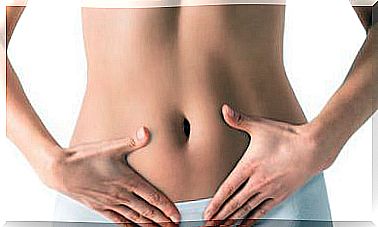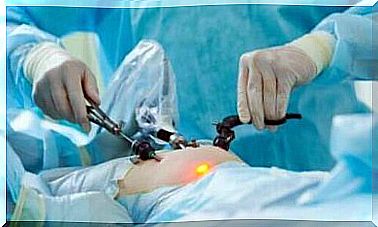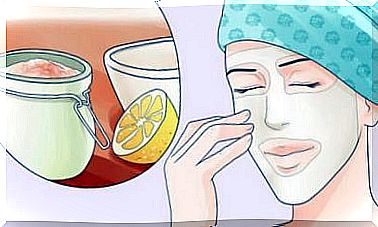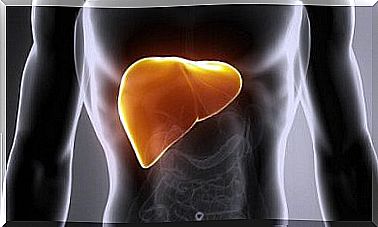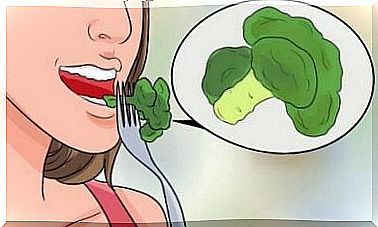Treatments For Dysphagia
Dysphagia is a disease that can appear for several reasons. Therefore, there is no single treatment. Indeed, it is necessary to establish a precise diagnosis in order to choose an adequate therapeutic approach.

Treatments for dysphagia are considered based on the two basic types that exist for this disorder. We discuss them in this article.
However, it is almost always necessary to resort to strict medical therapies, even surgery. As long as there is a precise diagnosis beforehand. Sometimes it is transient and banal dysphagia, while other times we are faced with a serious problem, including of an oncological type.
What is dysphagia and the different types?
Dysphagia is defined as difficulty swallowing. However, it is not about the inability to swallow, nor the pain when food passes through the throat. Indeed, this can be confusing due to the similarity.
If the problem is related to the throat itself, with pain, it is possible that we are dealing with odynophagia, infectious or inflammatory causes most of the time. At the other extreme, dysphagia occurs when the person has difficulty swallowing food or saliva from the oral cavity to the stomach.
As we see from the definition, several organs are involved in this disorder. Which makes it even more complex. On the other hand, it can be a difficulty with liquids or solids. These kinds of symptoms largely guide the diagnosis.
The types of clinical presentation are as follows:
- Oropharyngeal: This type of dysphagia is the classic problem of swallowing liquids and foods at a high level. It is located in the throat and its most common causes are neurological. Stroke patients suffer from it and their diet becomes complicated. This then leads to other complications like dehydration and weight loss.
- Esophageal: as its name suggests, it is dysphagia of the esophagus, for liquids and solids. The esophagus is a hollow, tubular organ, which promotes obstruction in the face of neoplastic processes. The most serious cause is of course cancer.
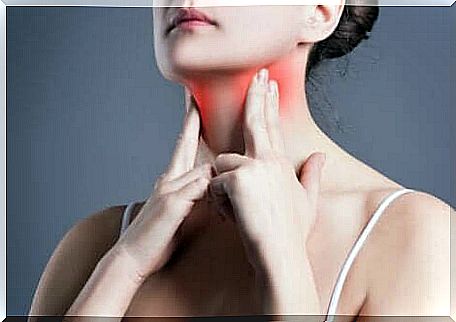
Treatments for oropharyngeal dysphagia
First of all, treatments for oropharyngeal dysphagia require professional suspicion. The first thing that is suspected is the existence of causes that can be corrected with a change in habits. Indeed, there are solvable problems.
One of the first habits to change is eating with the modification of the textures and volume of food. The intention is to help the patient to digest in peace and to overcome the obstacle of his upper digestive tract.
In people with neurological disorders due to primary pathologies or sequelae, posture is a determining factor. For many, simply changing the position of the neck during meals is enough to correct dysphagia and leave it behind.
Rehabilitation processes are also applied for this activity of daily living. Eating is learning when you’re little, and it’s again the case for stroke patients, for example. Indeed, nutritionists and physiotherapists teach these people to eat.
The establishment of an accessory nutritional support is reserved for complex cases. If the patient is no longer eating, despite the changes, or is losing weight and becoming dehydrated, then the approach goes further.
- The usual support is the nasogastric tube.
- The surgical variant is less common but it remains an option when the risk of starvation is greater than inaction.
What about esophageal dysphagia?
Esophageal cancer is not the only cause of this type of dysphagia. Indeed, adequate treatment depends on a precise diagnosis. Esophageal dysphagia can be due to esophagitis, which is inflammation of the organ, or achalasia which is impaired peristaltic movement.
When the approach is surgical, the treatment of choice is endoscopy. A flexible tube is then introduced which runs through the upper digestive system looking for obstructions. The device also has a camera at its end as well as work tools for the surgeon. If there is a foreign body, it is removed. The professional can also take a sample.
In people with severe obstructions due to decreased lumen from the organ, the endoscope may also expand during this maneuver by correcting the lack of progression of the elements inside.
Among the drugs that can solve the problem without surgery, we can mention the following:
- Calcium channel blockers: These drugs are aimed at regulating muscle contractions in the smooth muscle of the esophagus. Their effectiveness is disputed by clinical trials.
- Proton pump inhibitors: they are used more as adjuvants than as direct therapy. They reduce the production of hydrochloric acid in the stomach, thus decreasing its reflux with the resulting esophageal irritation.
- Botulinum toxin: Injection of this substance has been tried out several times but the results are not entirely promising. Initially, the application must be repeated every 6 months to maintain the effect. Then, the patients followed by this treatment finally underwent surgery.

Treatments are complex
As we have seen, it is not easy to approach dysphagia and provide solutions. Serious underlying causes, such as cancer, require an accurate diagnosis that leaves nothing to chance.
Finally, it is essential that consultations are carried out correctly and that the therapeutic indications are respected. The consequences of this disorder are malnutrition and dehydration.
